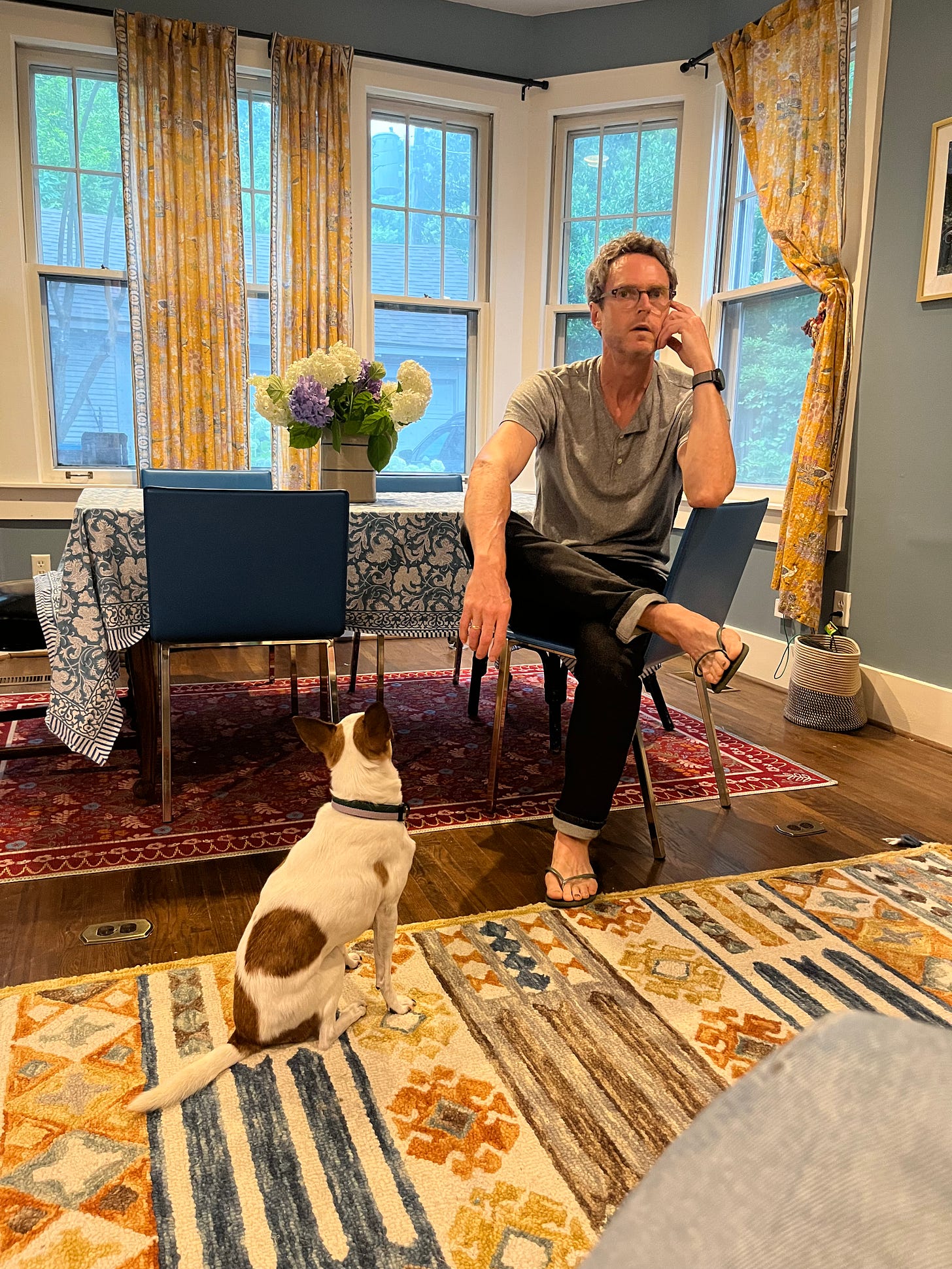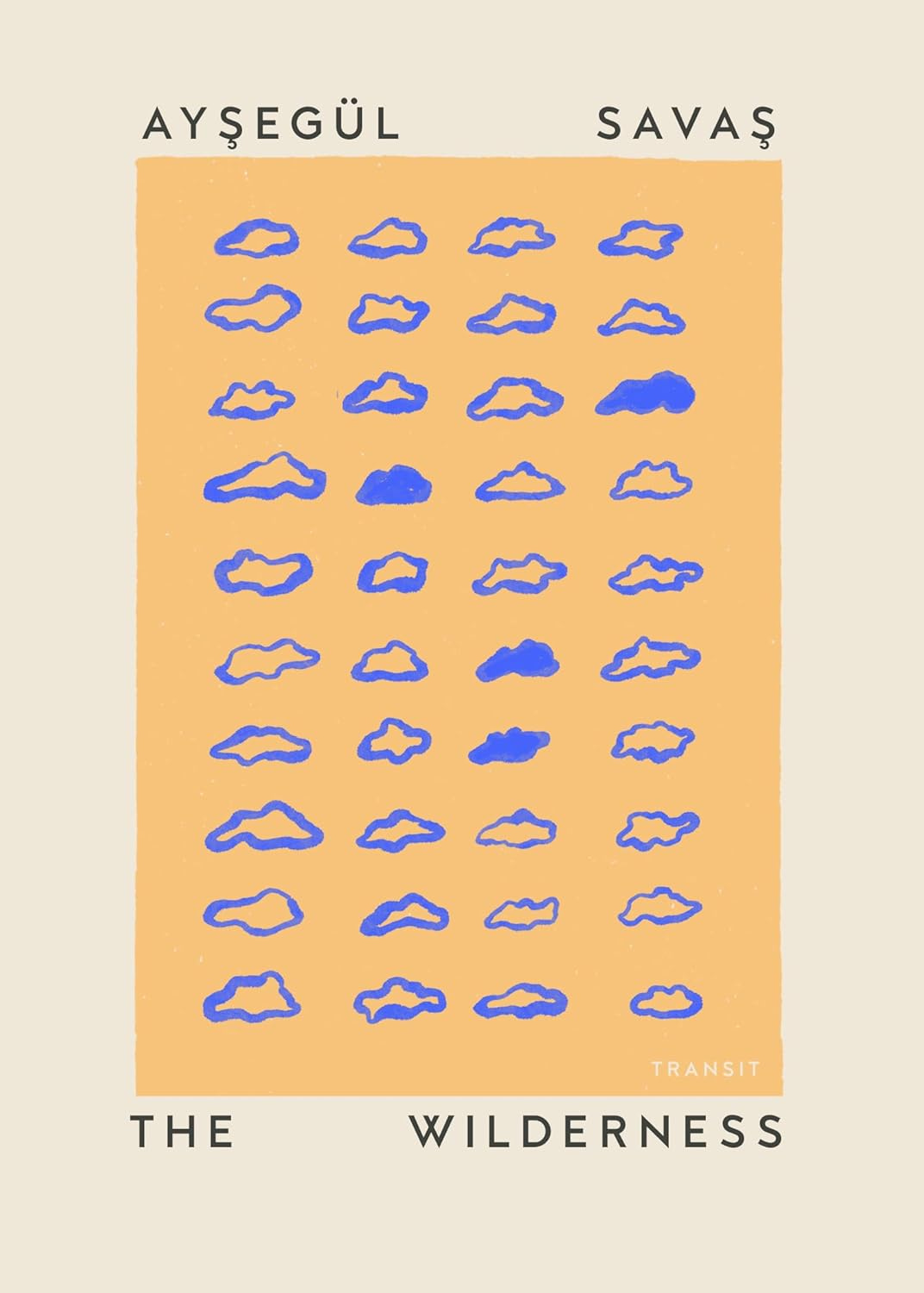The job of a poet
is to chase a feeling.
–
A few years ago, my husband and I joined a wine club to learn more about wine. Every month, we'd get two bottles and a tasting note packet. We always drank the wine—but we never read the notes. We joked that we were the worst wine students in the world. Still, over time, our taste shifted. Not because we understood tannins or talked about mouthfeel. By drinking better wine, we developed a taste for good wine. It was that simple. This is the mystery I'm interested in: how we change without trying to change, how exposure rewrites us in ways we can't control or fully understand. And I think that's exactly what's happening with my reading now.
Since January, I've been reading one poetry collection a month. I was, to put it directly, scared shitless and overwhelmed by the idea. But I kept circling poetry—how I avoided it, how I didn't want to. So I decided to try, just one book at a time.
Now it's May. I've read Ada Limón, Ariel Yelen, Maria Zoccola, Alex Dimitrov, and—this past month—my favorite collection so far: Maggie Nelson's something bright, then holes. I still don't feel fluent. Writing about poetry in my monthly reading posts gives me hives. But I've noticed some real changes in myself as a reader—shifts that feel as mysterious and gradual as learning to taste wine without studying it. Changes that happened to me, not changes I made happen.
Atmosphere Over Story
The idea for this post came to me during a conversation with my husband. We were talking about what to read next, and I said — off the cuff — that I'd been finding plot-y books kind of… annoying.
Without missing a beat, he said, That's because you're reading more poetry.
Huh. Ok.
I've been indifferent to plot for a while, but it was true… lately, I barely register it. I don't need a story, I need presence. I want to know where I am—what the room smells like, what color the light is, whether the narrator notices the condensation on the glass or the dust on the windowsill. Not setting, exactly—atmosphere.
It's so early, I am still in last night.
All of like honks.
The streets steam.
Gin changes to coffee.
And I think of you less.
Then I think of you often.
How strange!
— From Everything Always by Alex Dimitrov
Texture. Sensation.
It's what I loved most about The Safekeep, which I read this past month and couldn't put down—even though I found the ending a little too neat. The draggy bits, the slow parts? I adored them. When the momentum dipped, something deeper came through:
She had made the kitchen a lovely place. Isabel could cry at it: at how a room could be made, and left behind, and turn terrible by way of absence. How a space could miss a person.
— From The Safekeep by Yael van der Wouden
That feeling — that something's happening even when nothing's moving — is what's drawing me in now. The poetry of it.
Words That Work on the Body
I know it’s a weird thing to say as a reader but it wasn't until I started reading poetry that I began to feel language — the sensuality of it, the way that it literally triggers the senses. I'm still primarily a character-motivated reader. I don't care much about what a character does, but I care deeply about being walked carefully through their interiority. Lately, though, I've become more sensitive to how I'm brought into that inner world. Not more analytical—more physical. I notice when language works on my body before I understand why.
In The Wilderness — a memoir about her first 40 days post partum — Ayşegül Savaş writes:
Mothering, at every turn, is about being mothered. Everywhere in the wilderness I hear the cries of other mothers. I call back to them, asking for help, but sometimes they can't hear me through their own cries.
There's a tenderness but also a violence in her language, a spareness that captures the bleariness of early motherhood so precisely, it made me want to cry. I wrote this one line in my journal:
All this time, we have not even managed to take a photo of the three of us: my mother, me, and the baby.
Maybe the rest of the book will fade. But I know that line will stay because even now when I talk about it, I can feel its effect on me — the tingling in my cheeks, the lump in my throat, the words getting stuck in my chest… the literal physical sensation of recognition, regret and sadness all wrapped into one. I've started to accept that some books might only give me one line, one image, one idea. But that's the work now: chasing that physical resonance over resolution.
Reading for clues
A few months ago, I heard Anahid Nersessian and Merve Emre1 discuss how poetry can either conceal or reveal its lineage. That idea stuck.
Not just in poetry—I've started noticing it everywhere. Is this writer letting me in? Are there trailheads for me to follow? Is this a closed system or are there openings? The natural gossip in me has always been curious about authors' backgrounds but now I find myself wondering more and more: What books are they in conversation with? Whose voices are humming under the surface?
I was doing this while reading upcoming nonfiction debut — The Möbius Book (in tandem with my friend , a fellow Lacey superfan). I started cataloging what I suspected were nods to other writers. I wasn't trying to be clever—I was just nosy. I did some internet-sleuthing, tried to figure out who the ex-boyfriend was who inspired the book, who the various publishing-world characters might be. Then I made a reading list based on the acknowledgements section.
I thought we all did that. Until Martha told me she hadn't read the acknowledgments and thanked me for doing the detective work for us. 🕵🏻♀️🤭 That's when I realized: this impulse to trace literary DNA had already been there for me but it had definitely intensified. I'm reading for the conversation between books now, not just the book itself. I'm reading the web of books around it.
Honestly, I don't know more about poetry than I did five months ago. I'm still intimidated by poets who reference Ovid or Pound with casual ease. I still can't explain why certain lines stop me cold while others slide right past. But my body has been changed by it. Something has rewired in me that I can't name or control or even fully recognize until someone else points it out.
This is what fascinates me: the gap between conscious learning and embodied change. Poetry hasn't made me smarter about poetry. It's made me different as a reader in ways I'm still discovering. Like wine, it taught me to notice what I still can’t name. I'm learning to be okay with not having the vocabulary for what I'm tasting. I'm learning to trust the transformation even when I can't chart it.
🤓 Questions for you:
What's something you've read recently that changed the way you read?
Do you track literary references in books? If yes, how? If no, why not?
What makes you stop reading a book? What makes you stay?
I am totally obsessed with this podcast.









Thank you detective Petya for doing all the work for us both!! I love and admire how different approaches to reading and how both of them were brought out in our discussion of Möbus! Going forward I am going to see if I can interrogate more why I read the acknowledgements when I do, and why in some cases I don't?!!
The phrase 'the impulse to trace literary DNA' is magical.
this is so so interesting to me because I am having a similar reaction to my reading but completely the opposite - the more I read, the more I need something innovative. if something isn't slightly weird or different in its language/themes/structure, I find myself getting bored. I've been rolling my eyes at the quiet stuff, like stoneyard devotional. I'm in my weird era, apparently 🙊